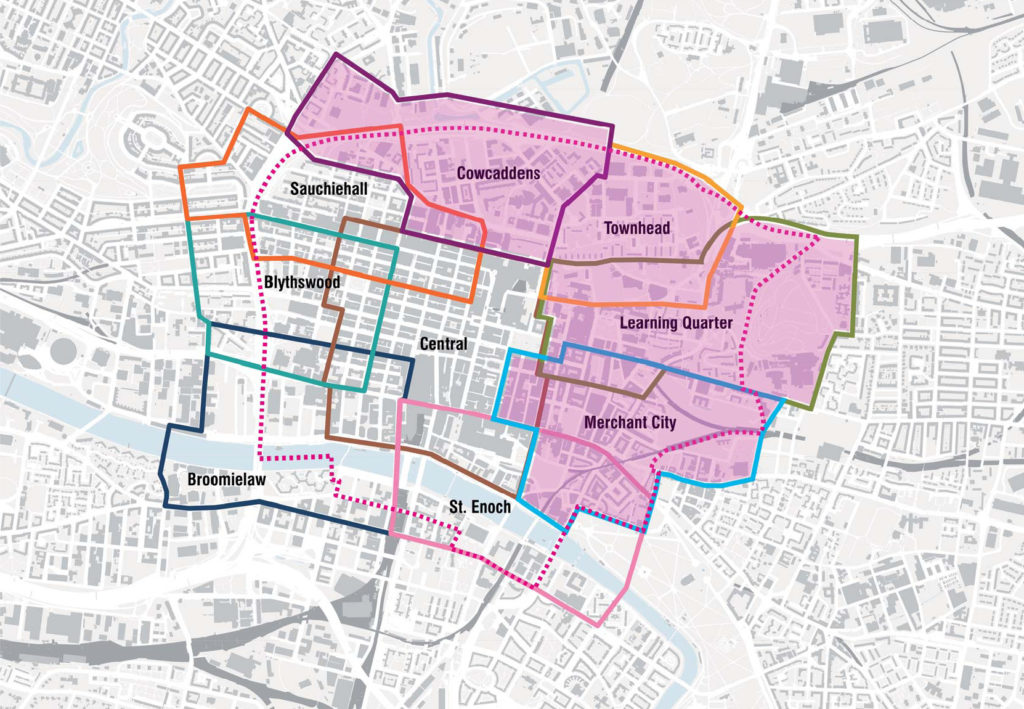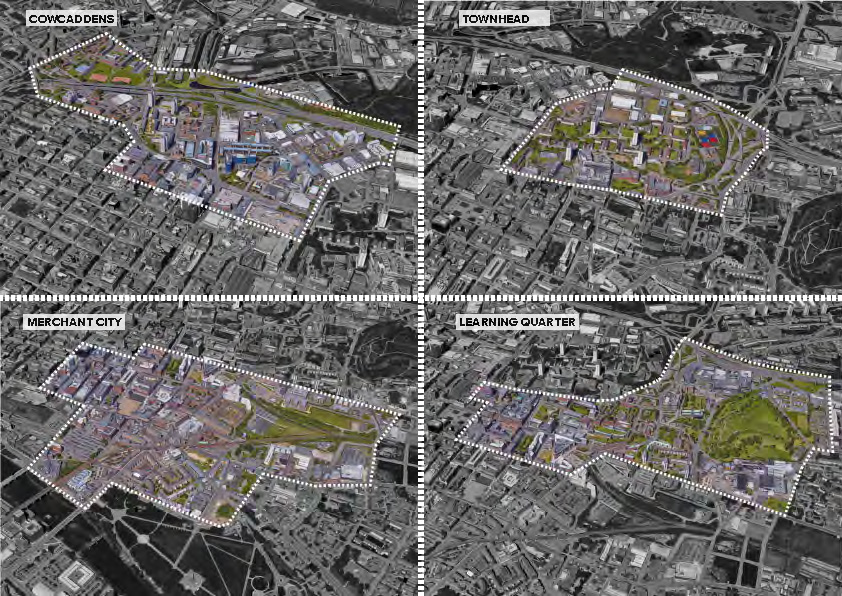Austin-Smith: Lord to prepare Glasgow city centre planning frameworks
Glasgow City Council has enlisted Austin-Smith:Lord to lead a multi-disciplinary team of local and international consultants to prepare pioneering planning frameworks for the future of four city centre districts.

Following on from its work for the (Y)our City Centre District Regeneration Frameworks (DRFs) for Broomielaw, St. Enoch, Central and Blythswood, the team has now been handed responsibility for Cowcaddens, Townhead, the ‘Learning Quarter’ and the Merchant City districts.
The team includes Rotterdam-based urbanists Studio for New Realties led by Jeroen Zuidgeest who was involved in previous (Y)our City Centre DRFs as partner at MVRDV. The team also draws upon the expertise of Urban Movement and Civic Engineers – which are working with Glasgow City Council on the Glasgow City Region City Deal ‘Avenues’ project – and local artist-led organisation WAVEparticle which recently represented Scotland at the Venice Biennale and have undertaken community-led projects on High Street-Saltmarket and in Laurieston.
The next DRFs will be prepared in consultation with local communities across all four Districts to respond to and enhance their distinctive local character. Working in collaboration with residents, businesses, community, civic and cultural organisations alongside major institutions including the University of Strathclyde, Glasgow Caledonian University and City of Glasgow College it is intended to develop forward-thinking plans to help shape the future of these vital city centre districts.
The regeneration frameworks will establish a planning strategy to respond to opportunities and challenges these Districts face to enhance the quality of life, health and wellbeing of the local communities, economy and the environment.

The frameworks will capitalise on the area’s rich built and social heritage, diverse local culture and community assets including local businesses, city centre college, universities and innovation district. The frameworks will also address the big challenges facing contemporary society including health, social and economic inequalities, climate change and how the city can renew and recover post-COVID-19.
The frameworks will promote both local and large scale projects in an action plan considering how to fund and deliver regeneration with short, medium and long term interventions. The frameworks will be prepared in consultation and collaboration with local communities over the remainder of 2020 and into 2021 with the intention that they will be published in late 2021 / early 2022. Details of how local communities and stakeholders can engage and help shape and influence these future Frameworks will be published in the coming weeks, with updates at www.yourcitycentre.com.
Councillor Susan Aitken, leader of Glasgow City Council and city convener for inclusive economic growth, said: “It’s vital that our city centre is equipped for both the structural changes facing our high streets and the need for carbon neutrality within the next decade. These shifts are already creating both challenge and opportunity and the district regeneration frameworks will give us the blueprints to renew the beating heart of Glasgow.
“A team of leading experts with international and local experience will assist us in shaping that future, whilst retaining the strengths and character we cherish about each district. We need our communities to come with us so I would urge all those whose neighbourhoods are within the frameworks to get involved in our consultation in the months ahead.”
Graham Ross, architect and urban planner at Austin-Smith:Lord, added: “It’s a great privilege and big responsibility to be taking on the preparation of these Regeneration Frameworks with local communities in these pivotal city centre Districts. Developing distinctive solutions drawing upon the creativity and wisdom of local people, in combination with international best practice, will ensure our city can thrive in the future.
“We will explore ways in which Glasgow can recover from the impact of COVID-19. We hope to develop imaginative and practical ways to adapt to economic and climate change that deliver enduring and positive regeneration.”



















